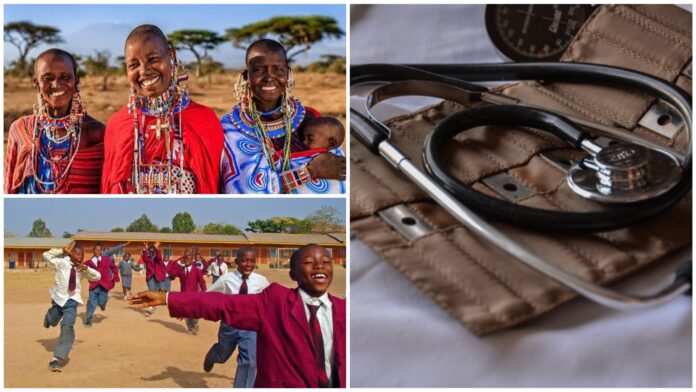Life expectancy in Africa has increased by nearly 10 years from 46 to 56 years between 2000 and 2019, according to the World Health Organization’s State of Health in Africa report.
The World Health Organization announced the good news after examining life expectancy data across the 47 countries of the WHO African Region from 2000 to 2019 as part of a continent-wide report on progress in access to health care for all – a key objective of the SDGs.
However, WHO officials note that this is still well below the global average of 64 years. WHO Deputy Regional Director for Africa Lindiwe Makubalo warned that gains in life expectancy could easily be lost unless countries become stronger and invest more in health systems development.
Speaking from the capital of the Republic of Congo, Brazzaville, she said that Africa has started well in that direction in the last two decades.

On average, she found, access to basic services like basic health care improved to 46% in 2019, compared to 24% in 2000.
“Other factors include improvements in reproductive, maternal, newborn and child health,” Makubalo said.
Also, read; Despite Increasing Salaries of Its Teachers, Rwanda begins Hiring Zimbabwean Teachers
“Furthermore, the rapid expansion of health services to combat infectious diseases such as HIV, tuberculosis and malaria over the past 15 years has been a powerful catalyst for improving healthy life expectancy.”
While advances have been made in the prevention and treatment of infectious diseases, the report concludes that NCD health services are lagging.
He says the dramatic increase in high blood pressure, diabetes, cancer, and other non-communicable diseases could jeopardize health advances if these conditions continue to be neglected.
According to the report, the COVID-19 pandemic has caused major disruptions to essential health services on the African continent compared to other regions of the world.
Makubalo said these disorders could affect estimates of healthy life expectancy.
“As governments work to restore affected health services, it is crucial not only to work to bring health systems back to pre-pandemic levels.

Instead, significant improvements are important and necessary to ensure quality, equitable and affordable services for all,” she said.
The report notes that some progress has been made towards achieving universal health coverage, but it is far from sufficient.
According to health officials, one of the most important things governments can do to improve access to health services is to increase their public health budgets.
This, they say, would reduce catastrophic direct spending by families that are pushing millions of people into poverty.

